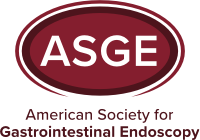Washington University School of Medicine - ERCP & EUS
Washington University School of Medicine
660 S. Euclid Avenue
Campus Box 8124
St. Louis, Missouri 63110
314-362-3685 (V)
Website
1 Position Available
Program Type: Both ERCP & EUS
Authorized Administrative Official: Kaylha Mcgee (email)
Program Director: Gabriel Lang, MD (email)
Program Director Phone: 314-362-3685
Program Director Fax: 314-747-1277
Duration: 1 Year
Inclusive Dates of the Program: 7/1/2025 to 6/30/2026
Program Website: gastro.wustl.edu
Accepts applicants from outside of North America? Yes
Accepts applicants with J1 visas? No
Accepts applicants with H1B visas? No
Accepts applicants with E3 visas? No
Supervised ProceduresProcedure |
Faculty Involved in AEF Training | Total Annual Volume | Annual Volume with hands-on AEF Involvement |
|---|---|---|---|
| ERCP | 8 | 1512 at main campus (BJH) | 444 |
| EUS | 9 | 1674 at main campus (BJH) | 330 |
| Lower GI EMR | 9 | 250 | 50 |
| Esophagogastroduodenal EMR | 9 | 110 | 25 |
| Esophagogastroduodenal ablation (e.g., RFA) | 9 | 200 | 45 |
| Small bowel enteroscopy | 9 | 74 | 15 |
| ESD | 2 | 50 | 25 |
| Bariatric endoscopy | 1 | 50 | 25 |
| POEM | 2 | 35 | 15 |
Unsupervised Trainee ActivitiesProcedure |
Value |
|---|---|
| General GI procedures (per year) | 500 |
| Inpatient service (weeks/year) | 0 |
| Ambulatory clinics (per year) | 0 |
| Committed time for research (days/month) | 4 (if desired) |
Program Reporting Summary
The ASGE Training Committee requested that each AEF program voluntarily submit an annual report summarizing their advanced endoscopy procedure volume. You can view the provided report below.
Requirements for Application
- Standard ASGE Application Packet
- ASGE Application
- Post-Undergraduate Education
- USMLE Scores
- Certification of Completion of Residency
- Prior to appointment in the advanced endoscopy fellowship, fellows should have completed a three-year ACGME-accredited gastroenterology fellowship
- Fellows from non-ACGME-accredited programs must have completed at least three years of gastroenterology education prior to starting the fellowship
- Personal Statement
- Curriculum Vitae
- 3 Letters of Reference
Additional Information about Program
Purpose: To train the future leaders of interventional endoscopy and prepare these individuals for academic careers that will include clinical excellence, clinical investigation, authorship, and excellence in the training of future fellows in interventional endoscopy.
Background:
The 12 month advanced endoscopy fellowship has been designed to educate future academic leaders in the field of interventional endoscopy. The focus is on procedural excellence, scholarship and teaching. The flexible nature of the program allows for the trainee to achieve procedural competence in EUS, ERCP and other advanced endoscopic techniques by tailoring an individual program based on their interests and background. A major goal of the program is to prepare and place the fellow in an academic or tertiary referral situation after graduation that will allow the individual to develop a career that will include clinical expertise, research, and teaching to further benefit the field of Interventional Endoscopy.
Clinical duties:
The clinical duties of the fellowship are intentionally focused to allow the fellow time for the development of clinical, research and teaching skills throughout the year while experiencing close mentoring from the section faculty. Procedural volumes allow direct performance of well over 400 ERCP and 350 EUS procedures, in addition to numerous other advanced endoscopy techniques (endoscopic therapy of Barrett’s esophagus and esophageal cancer, enteral stenting, deep-enteroscopy, tumor ablation techniques, ESD, POEM, bariatric endoscopy and combined interventions for biliary and pancreatic access) The advanced endoscopy fellow has the appointment of Instructor in Medicine at Washington University School of Medicine. Fellows must be licensed to practice Medicine in the State of Missouri. In this role, the fellow independently staffs a general endoscopy suite typically once weekly, to participate in the education and endoscopy training of junior fellows in Gastroenterology. He/she also shares general GI call with the rest of the faculty, typically about 3-4 weeks annually. The program does not involve clinical or on call responsibilities beyond that already outlined, so that the advanced fellow is focused on his/her education and training during this intense year. It is expected that free time (nights and weekends) will be used for academic pursuits, and manifest in scholarly works over the course of the fellowship year. Fellows maintain a procedure log and are continuously evaluated by the section faculty. A complete assessment of competency with remedial training in areas of deficiency is completed by the end of the year.
Research Duties
The advanced endoscopy fellow will promote the research mission of the section in many ways. The fellow will participate in all ongoing trials in the section, including recruiting patients, collecting data, and generating abstracts and manuscripts. The fellow will also be mentored by the section faculty in the initiation of specific research projects to be completed during their training. Additional projects that may be started but not completed in one year will be expected as well. The fellow is expected to submit a minimum of 2 abstracts to DDW, complete two manuscripts, and complete at least one review article or book chapter during the year of training.
Please Note: All data in this program description is entered on a voluntary basis
